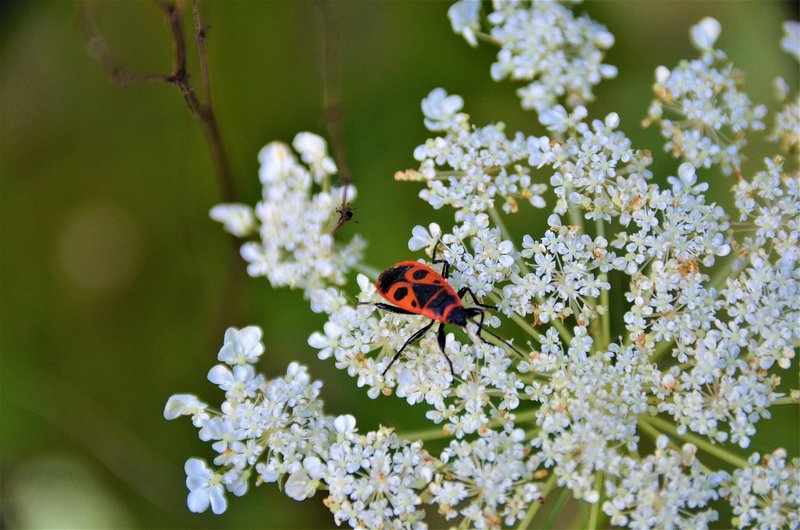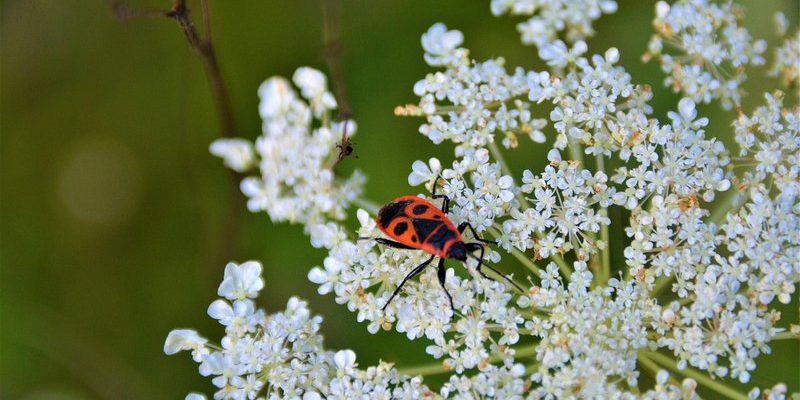
In this article, we’ll dive deep into the fascinating world of beetles and explore their essential roles. From their surprising ability to pollinate plants to their unique habits that aid in decomposition, these little bugs are way more interesting than you might have thought. So, grab a cup of coffee, kick back, and let’s explore the incredible jobs done by beetles!
The Fascinating World of Beetle Pollinators
You might be surprised to know that beetles are among the oldest pollinators in the world. While bees often steal the spotlight as the go-to pollinators, beetles play a crucial role as well. They’ve been buzzing around long before our furry friends were even thought of!
But how do beetles contribute to pollination? Well, they’re attracted to certain flowers, especially those with strong scents or dull colors. Think about it this way: if flowers were hosting a party, beetles would be those guests who show up for the food! As they munch on the pollen or nectar, they unintentionally carry pollen from one flower to another, helping plants reproduce. This process is essential for many fruit and vegetable crops, making beetles crucial players in our food system.
Some flowers even rely heavily on beetles for pollination. For example, the Magnolia is known to attract beetles, which often feed on its petals. It’s a beautiful partnership—beetles get a tasty meal while flowers ensure their survival!
Beyond Pollination: Beetles as Decomposers
Beetles aren’t just busy in the flower beds; they’re also nature’s clean-up crew. Have you ever heard of decomposition? It’s the process where dead plants and animals break down into nutrients that enrich the soil. And guess who’s right in the mix? Yep, beetles!
Many beetles, like dung beetles, specialize in breaking down waste. They bury animal droppings, which helps recycle nutrients back into the ecosystem. It’s a win-win situation: they get food and help plants thrive by returning vital nutrients to the soil. Honestly, without these little guys, our world would be a lot messier!
Think of beetles as the recycling champions of the insect world. They not only keep the environment clean but also ensure that the soil remains rich and healthy for future plant growth.
Beetles and Soil Health
So, what’s the deal with soil health? It’s key to supporting all life on Earth, from the tiniest plant to the largest animal. Beetles contribute to this constantly evolving environment by aerating the soil as they burrow and feed. Imagine them as tiny gardeners, digging through the earth to create pathways for air and water.
This aeration process helps roots grow more efficiently, allowing plants to absorb nutrients better. A well-aerated soil can support a diverse range of plant life, which in turn supports various insects, birds, and mammals.
The connection between soil and beetles is pretty fascinating. Not only do they contribute to soil health, but they also help control pests by keeping certain populations in check. By reducing pest numbers, beetles indirectly support the growth of healthy crops.
Beetles in the Food Chain
In the grand tapestry of life, beetles hold an important position. They serve as a food source for a variety of animals, including birds, mammals, and even other insects. This makes them an integral part of the food chain.
Let’s consider a simple example: when a bird eats a beetle, it gains nutrients that help it survive and thrive. In turn, the bird can become food for larger predators. If beetles were removed from this equation, the entire food web could suffer. Many animals depend on beetles for sustenance, and their disappearance could lead to a domino effect throughout the ecosystem.
This shows just how interconnected everything is. One tiny beetle helps support vast populations of other creatures, maintaining a delicate balance in nature.
Common Beetles and Their Unique Roles
Now that you know how important beetles are, let’s highlight some common types and the specific roles they play.
- Lady Beetles (Ladybugs): Great at controlling aphid populations, they consume large amounts of these pests!
- Dung Beetles: As mentioned, they break down animal waste, making them vital for recycling nutrients.
- Flower Beetles: These beetles help with pollination and are attracted to specific flowers, aiding in reproduction.
- Stag Beetles: Known for their impressive mandibles, they help keep wood healthy by feeding on decaying wood.
Each type of beetle has its own special set of skills that contributes to the overall health of the environment. You might be wondering how such small creatures can have such a big impact, but it all comes down to their unique roles in various ecosystems.
Challenges Facing Beetle Populations
Despite their importance, beetles are facing significant challenges. Habitat loss, pesticides, and climate change are all threats to their survival. When we lose beetles, we not only lose pollinators and decomposers, but we also disrupt entire ecosystems.
Imagine a chain reaction where the decline of beetles leads to fewer flowers, which then means less food for other wildlife. It’s a troubling thought. Honestly, we need to take steps to protect these tiny hard workers. Creating habitats by planting native flowers and reducing pesticide use can help.
Here’s the thing: each of us can play a part in supporting beetle populations. Whether it’s planting a garden, preserving natural habitats, or simply spreading the word about their importance, every effort counts.
How You Can Support Beetles
If you want to make a difference for beetles and help them thrive, here are a few simple steps you can take:
- Plant native flowers: They attract beetles and provide food sources.
- Avoid pesticides: Chemicals can harm beetles and their food sources.
- Create habitats: Leave some areas of your garden wild; beetles thrive in diverse environments.
- Educate others: Share the importance of beetles with friends and family!
By making small changes in our gardens and communities, we can help ensure beetles continue their essential work in our ecosystems.
In conclusion, beetles are a lot more than just insects that scurry by. They are crucial players in our ecosystem, working as pollinators, decomposers, and parts of the food chain. As we learn more about these amazing creatures, it becomes clear that protecting their habitats is essential for our world’s health. So, let’s give a nod to these little heroes and do our part to support them. After all, every tiny effort counts!

